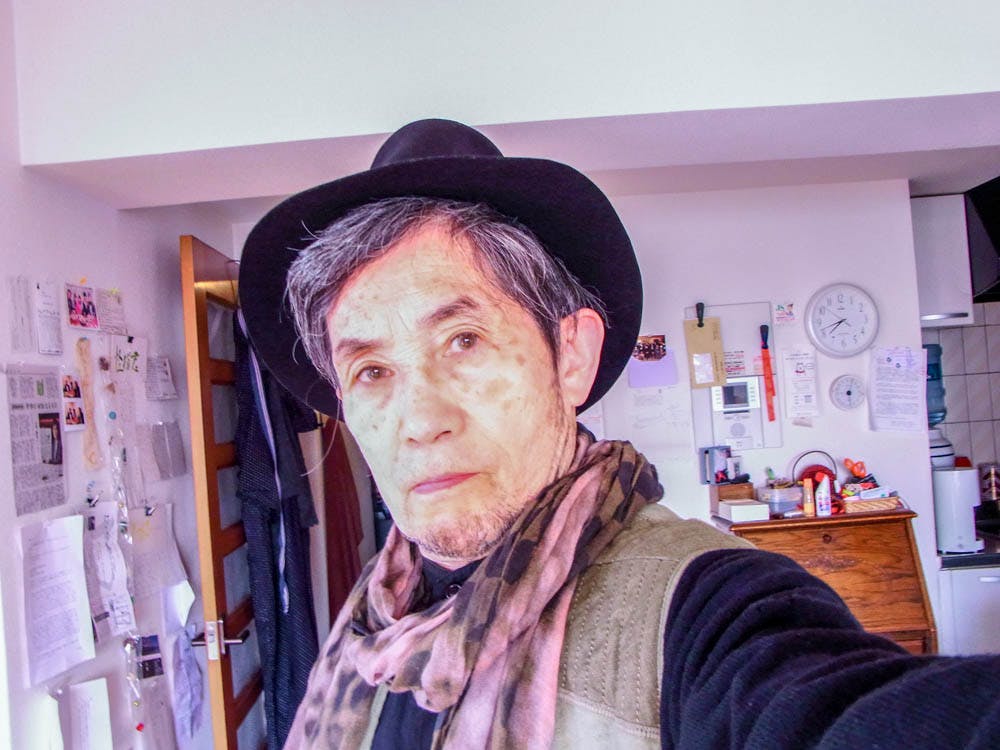Renowned Japanese poet Gozo Yoshimasu visited Brown Sept. 22 to perform a reading as part of the Writers on Writing Reading Series. His most recently published collection of poems, “Alice Iris Red Horse” was edited by Forrest Gander, professor of literary arts, comparative literature and creative writing.
Yoshimasu, who has received many awards worldwide and published over a dozen works of poetry and prose, re-examines the ideals of poetry through his highly experimental pieces. By utilizing multilingual rhyming and typographic wordplay, he crosses conventional borders and employs a distinctive and unparalleled technique.
“His poetry skitters underneath the semantics and utilizes phonemic connections between multiple languages and on rhymes,” Gander said. “These rhymes take advantage of Japanese and Chinese characters and the difference between the visual representation and the sounds that come out of them.” For instance, his unconventional application and repetition of punctuation and blank spaces creates unusual — sometimes jarring — moments of silence in his writing.
This unorthodox approach may be somewhat attributed to Yoshimasu’s adolescence during the 1960s in Tokyo, an era of multimedia and cultural experimentation in Japan. He has never been afraid to branch out into other art forms, as he has performed his pieces with jazz musicians and dancers and even created films and music himself.
“That kind of experience is important — being with others,” Yoshimasu said. One of his most memorable collaborators, dancer Kazuo Ohno, an influential figure in the modernist Japanese dance form Butoh, was described by Gander as “a younger Gozo, whose performances make you think differently about time and body.” Yoshimasu also cited the Beats movement and American jazz music as sources of inspiration, and said that he particularly admired musician John Cage and poets Allen Ginsberg and Michael Palmer.
Though Yoshimasu’s work has always been enjoyed by a broad audience, after the 2011 Fukushima earthquake, his content began to cater to a more marginalized group. “He’s devoted himself to writing for these traumatized spaces, many of which he has been to,” Gander said. “A lot of his poetry is a kind of testament to that encounter.”
Sept. 22, Yoshimasu showed the original pieces of paper upon which he wrote “Alice Iris Red Horse” and explained that his handwriting grew increasingly smaller following the disaster. Acting as an antenna, he listens intentionally to the traumatized and then speaks to those people and places through his work.
But the full artistic experience of Yoshimasu’s endeavors surpasses the simple medium of paper and requires a full engagement of the senses and subconsciousness. In the delivery of his poetry, Yoshimasu took off his shoes, sat down and put on a braided headband and eye mask. Swaying back and forth as Gander read his work, he created noises using tools to accompany the reading. By tapping a French cowbell, banging a metal bar, clanging together two pieces that hung from his teeth and dragging his hands along the wooden floor, Yoshimasu established a personal and entrancing ambience in the room.
“Every time I perform, the energy or existence is different, so I try to train myself to be fluid and try different customs,” he said. The performance of his poetry requires a sense of improvisation and lack of consciousness that contrasts to the memorization of a singer, he added. “When you memorize, it disturbs. Creation is the opposite.” Such a potent sense of awareness — for the space, for the audience and for the self — was a constant throughout his performance.
Throughout the discussion of his work, Yoshimasu mentioned several times that he considered himself a “very bad poet” and presented Edgar Allan Poe and Emily Dickinson as examples of who he considered “good poets.” But his poetry strikes a rather different vibration than that of any other writer, a tone that cannot be categorized or truly judged simply due to its highly unorthodox nature. “It’s not a good poem,” he said of a reading from “Alice Iris Red Horse,” “but it has a special feeling.”





